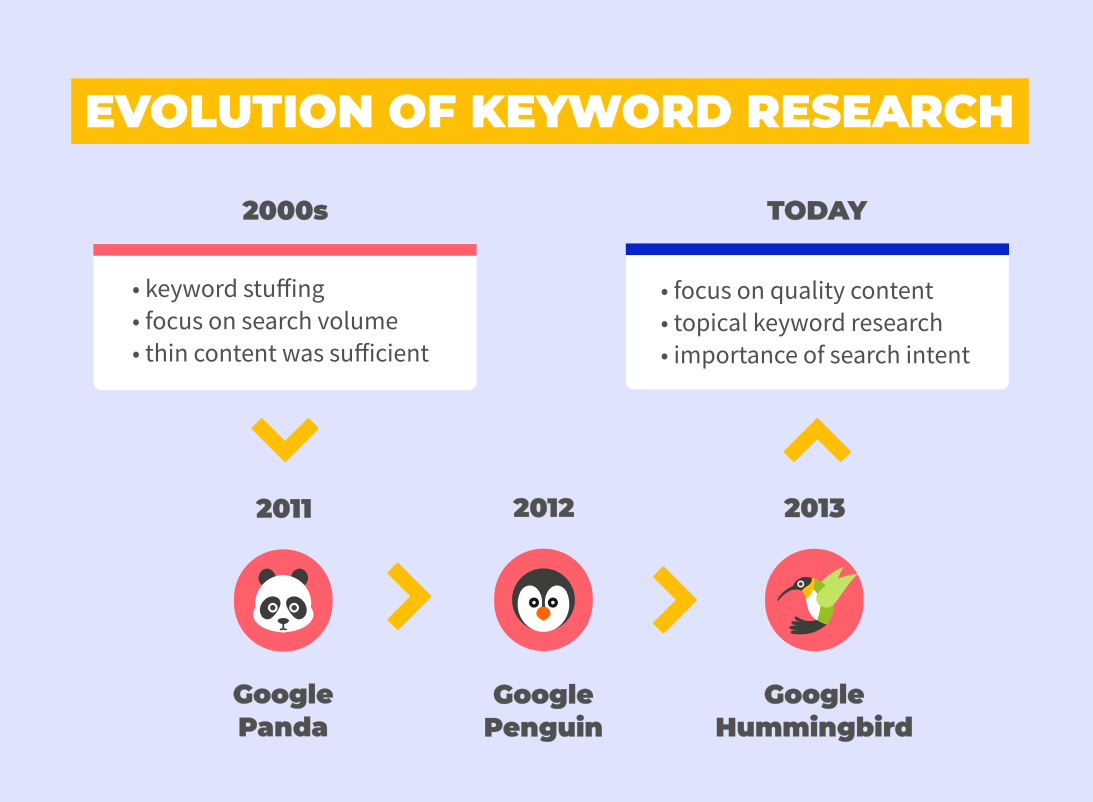Keyword Research Principles (Session 1)

Before we get into the details, let’s take a look at the basic terms and concepts associated with “keyword research for SEO.”
What are keywords?
Keywords (“SEO keywords“) are any word or phrase that a user types into a search engine to find specific information on the Internet. A keyword is the gateway that leads people to organic search results and ultimately to the website where they find what they are looking for.
This is why finding the right keywords is so important in SEO. Once you have found the phrases and words that people search for to reach you, you can adjust your content strategy and optimization to target these phrases. As a result, you will rank better and get more visitors. Keywords are obtained through keyword research.
What is keyword research?
Keyword research is an SEO practice of finding, analyzing, and using the phrases that people use to search for information on the internet. In other words, reading the minds of visitors and using this information is called keyword research.
Why should we do keyword research?
Because it is one of the most important SEO tasks and a great way for users to access our content.
How to do keyword research?
Well, that’s what the Digital Giraffe team will tell you. Don’t worry, keyword research isn’t rocket science. Once you understand the basics and learn some proven strategies, you need to learn the little tricks. Finally, try and don’t give up! ?
When should we do keyword research?
Keyword research is usually the first step in search engine optimization for any website. You should do keyword research when:
- Are you looking for a new article?
- Looking for new content ideas?
- You have started optimizing existing content.
Who should do keyword research?
Every website owner, blogger, digital marketer, and SEO specialist should do keyword research.
A brief history of keyword research
The way people do keyword research has evolved over time. In the 2000s, keyword research often boiled down to visiting Google Keyword Planner, finding the keywords with the highest search volume, and inserting them into the text of a website.
Since it can be easily abused to rank for low-quality content, Google has addressed this issue with several algorithm updates over the years. The goal of these updates was to understand what users want and provide them with the best possible results. The most important Google algorithm updates that have impacted keyword research include:
- Google Panda: Penalizes poor, low-quality, and duplicate content
- Google Penguin: Penalizes unnatural and spammy use of keywords
- Google Hummingbird: Improved semantic search and focus on search intent

Google’s penalizing algorithms
Nowadays, keyword research is much more than finding the “right” keywords and placing them in the “right” places. Google is getting better every day at understanding what people are looking for. Its main goal is to provide content that best meets their needs.
Google RankBrainRankBrain is a part of Google’s algorithm that is based on artificial intelligence. The algorithm has been around for a few years, but it took a while to fully implement. In 2015, Google announced that RankBrain is the third most important ranking signal. Thanks to RankBrain, Google understands 2 things:
|
In other words, keyword research is becoming more thematic and conceptual. It’s no longer about finding the perfect keyword. It’s about understanding your audience and covering the topic in a sophisticated way. Simply put, if the topic is well covered, you can rank for keywords you didn’t even use in the text! (We’ll talk more about that in the final chapter.)
This doesn’t mean that keyword research isn’t important anymore – quite the opposite. It just looks a little different than it used to.
Keywords research steps
In the Zero to One Hundred SEO training, we spent a whole session teaching keyword research. I suggest that you read this section before starting lesson 2 of this training (Keyword Research Training). The purpose of this section that I am writing is this, I have divided the entire process into 3 main steps:
- Find keywords
- Keyword analysis
- Use keywords

3 Steps of Keyword Research
We will discuss this in full in the second session, which we will host next week, Wednesday.






